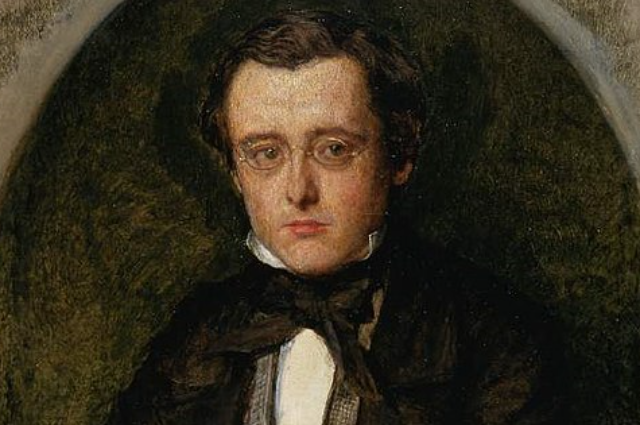
Sensation novels originated in the Victorian era, capturing the audience with their melodramatic elements and salacious incidents of adultery, murder, secret romances, and morally grey protagonists. These novels were meant to elicit a sense of shock from the conservative Victorian novels, centring themes that were considered taboo at the time. Oftentimes, these novels exaggerated social problems at the time, bringing light to certain aspects that were supposed to be hidden in Victorian English society at the time. Popular writers of sensation novels were Wilkie Collins, who practically had his bread and butter through these, Mary Ellizabeth Braddon and other smaller writers.
Though not one of Collins’ popular sensation novels, No Name (1862) still holds a place in his portfolio, even if overshadowed by his more popular The Woman in White (1860). The novel stands out among its Victorian counterparts with its unique style of storytelling and a morally grey female protagonist at a time when women’s place in the country was still kept to the domestic sphere. No Name primarily deals with the theme of illegitimacy and the laws in Victorian England that were often unfair to many people due to their status.
No Name’s plot is fairly simple. The Vanstone family finds itself in confusion after the death of Mr. and Mrs. Vanstone, leaving their two daughters, Norah and Magdalen behind. Due to a legal inconsistency, the two young women are considered illegitimate and therefore ineligible to inherit any sort of property from their late father. Norah accepts her fate and decides to live as a governess, but the younger, more spiteful Magdalen decides to take revenge on her family and claim the property that she rightfully deserves. After a myriad of incidents where she aligns herself with equally cunning people and failure in her goals, Magdalen ends up deciding to marry the barely present romantic lead of the story, Captain Kirke.
The Morality of Illegitimacy
Within the novel, illegitimacy is not particularly shown in terms of tragedy. There is no imagery of dreary orphans, suffering children or the harshness of life. Children born out of wedlock are not put into the box of suffering as many pieces of fiction tend to do, even in the modern age. Magdalen and Norah lived in relative wealth, with no whispers of sin enveloping their life. To Collins, who himself sired children out of the traditional marriage process, illegitimate children were just the same as everyone else. Magdalen’s identity does not disappear due to her illegitimacy as such, but due to the harsh Victorian laws regarding property rights.
No Name makes it clear that the legality of marriage is unimportant in front of love and affection. Mr. Vanstone’s first marriage may be legal, but it was his second marriage that gave him purpose and a family he loved. Family is contrasted against any law in the first chapters, and even the law is flawed, favouring distant male relatives over the Vanstone daughters, simply due to the circumstances of their births. In fact, the treatment of illegitimacy by other people is brought into question by Collins, pointing out the needless cruelty in old Victorian law.
Behind the Names
At first glance, the names of the main characters seem like typical names for women of the era. A closer look would indicate that their names reflect their journey throughout the novel. Magdalen’s name reflects the name of Mary Magdalene from the Bible – one of Jesus Christ’s most devoted disciples. She was a representation of someone who could go above their sins and repent, turning into a better person according to Biblical theology. This closely mirrors Magdalen’s journey as she turns from her morally dubious ways to a path of good, as defined by the era.
Nora’s name is a shortened version of the name Honoria. She is an honourable character by Victorian standards – a woman who goes with the current rather than trying to fight against it. In fact, this gives her a happy ending in the novel, having retrieved the fortune through coincidences that were indirectly put forward by Magdalen.
Erasure of Identity
Connecting to illegitimacy is the idea of identity. Since the two young women are seen as illegitimate and thus illegal in terms of their existence, nothing remains in the legal and government documents. The Vanstone sisters become aliens in their own land and country, without a concrete identity to stabilise them.
Magdalen’s background in acting seems to symbolise her lack of identity throughout the narrative. An actor’s job is to pretend to be someone else and exist as someone else throughout the story. The eighteen-year-old does precisely that; she pretends to be various people to get the job done. She ceases to be Magdalen Vanstone and becomes all of the identities – whether it be a disguise of her former governess, as Susan Bygrave or as a servant girl in the latter half of the novel.
Identity is a privilege in Victorian society. Without identity, it is impossible to persist in the classist and rigid structure of England at the time. Towards the end, Magdalen appears to have gotten a stable identity through marriage, but contemporary viewers will recognise the fact that it simply tethers her to Captain Kirke, making her identity a secondary one to the latter’s primary identity. Gender and identity work together insidiously, ensuring that Magdalen never develops a vision of her own.
No Name completely justifies its title as both Magdalen and Norah end up giving up their Vanstone name through marriage. Magdalen eschews revenge while Norah gets married as a proper Victorian woman should. The identity of illegitimate children and women remains a question, and even in the contemporary world, many Magdalens and Norahs have to figure out their way in society.
. . .
